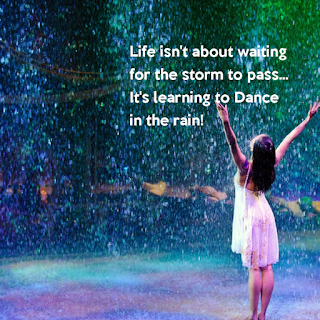Resilience Skills in Overcoming January
Resilience Skills in Overcoming January
Jo Mitchinson Team Aqua Sphere/MP 2018 Athlete
I’m glad to see the back of January if I’m honest. It threw
a lot of challenges my way and as a result I spent most of the month struggling
to breathe. My usually well controlled asthma took on a life of its’ own and it
took 3 weeks of steroids to calm down. I missed training and all 3 weekends of
the Herts County Championships. But when my asthma goes wrong it isn’t just my
swimming that suffers. I miss work, I’m unable to drive safely, I can’t speak
and each breath hurts. I am scared to fall asleep and when I finally do, my asthmatic
cough quickly wakes us all up. It’s a scary time.
Despite having asthma since childhood it didn’t start to
really affect me until a few years ago. I was fortunate enough to be referred
to some of the very best specialists in the country and there have been massive
improvements since then due to my medication. But sudden changes in weather is
my biggest trigger and this time of year is my most vulnerable.
Having swam well throughout last year in the pool and really
enjoying it, I did something that I’ve never done – I sat down with my coach (Magda
Klosowska) and set targets. Usually I just enter things that appeal as they
arise, but this season would be different. We would focus on the Counties, hope
to get a couple of Regional times under my belt and then work towards bettering
these in subsequent competitions throughout March and April. After the
Regionals I would start my Open Water season. Instead though, I watched the
Counties on the live stream, weekend one from my bed, weekend 2 from the sofa
and weekend 3 desperate to be there but having only just started training
again.
This however is not a ‘poor me’ blog. It’s about how my day
job enables me to rationalise setbacks and how I believe, that swimming would
benefit from teaching the skills of resilience. I am a teacher, PE by trade and
for the past 6 years Personal, Social, Health and Citizenship. I was asked by my
Head at this time if I would like to go on the Penn Resilience Programme
training course. It was 5 intensive days that simply blew my mind – learning
the skills and then learning how to teach them to students through 18 lessons.
I have now taught just over 600 students these skills and in the last few years
have also started working with How to Thrive (www.howtothrive.org), who deliver the Penn Resilience
Programme (PRP) training, as a facilitator of this and trainer of their Mental Illness
Investigated course.
My love of psychology stems from my degree programme, where
I opted for modules in the field of both psychology of education and sports psychology,
in particular the psychology of elite performance. As a swimmer who always seemed
to ‘over perform’ at big competitions I was fascinated in the inverted ‘U’ and Attribution theories. I could see swimmers to whom it mattered too much, riddled with nerves,
self-doubt and the expectations of over enthusiastic coaches and parents. I also
saw those who never seemed to experience the rush of nervous energy that I did
on race day and appeared not to really care. PRP makes students aware of the link between what they think and how they feel and behave. It teaches them skills for when they are experiencing negative thoughts that can make them want to give up. Often negative thoughts are missing important information that means we are not seeing the situation fully. The PRP encourages students to question their thinking (or as we call it in lessons 'beliefs in the moment' or 'self-talk') and how to generate more flexible and accurate thinking. The lessons set out the importance of our Beliefs (B's) in our reaction to an event. The reactions we have are the way we feel and behave in that moment and are known as the 'Consequences' or 'C's in PRP. In short,
the skills I teach every day in the classroom are the very skills I turned to
throughout January, the ones I use behind the blocks and the skills that I
believe all swimmers need to thrive in this sport.
Let me explain….
Imagine you are a 13 year old girl, stood behind the block
at her first regional championships. She glances across at her competitors. She
might panic and think to herself “I bet I come last” and as a consequence she
might feel scared, freeze and even more nervous than she did. Next door to her is a
nearly identical swimmer on paper – there’s nothing to separate them on times,
they’re even wearing the same swim suit. When she glances across though, she
thinks to herself “I’ve trained so hard, I’m ready for this” and as a
consequence of that belief she experiences a rush of confidence and calm. She’s
ready.
Through the PRP programme we teach young people to apply the skills to negative, unhelpful thoughts with something that is more accurate or flexible and certainly more useful to allow our first swimmer to be just as ready as the second. In PRP we call this skill Real Time Resilience. She will still have the first thought, but using the skill she is able to bat away the negative, unhelpful beliefs in that moment so she is able to get on with the swim. So for example when that unhelpful thought “I bet I come last” pops into her head she is able to counteract it, at speed, with something like “Another way of seeing this is that I’m fit, I’m healthy, I felt great in warm up and I smashed my PB 2 weeks ago. I’m in great shape”. It takes time and lots of practice to learn, but over time it can become a mental muscle and is a skill that I use myself a lot, both in swimming and professionally.
Beliefs (thoughts in the moment) are powerful, they can help or hinder you. Throughout January many of my beliefs were not helpful. For example, I fell into the trap of catastrophising. This is where one belief quickly spirals into a series of negative thoughts, feeding off the previous one. So as I wasn't able to train I might start with something like “Now I won’t get a regional time at counties”. That bit was fact – I can’t get a time if I’m not competing. However, the spiral that followed had no grounding in fact at all. Things like “this always happens to me”, “I’m too old for this now’, “the season is ruined”, “if this season is ruined so will next season be”, “if I don't compete for two seasons I’m finished”. My negative thinking here has spiralled out of control and, if allowed to go unchallenged, quite quickly I am on the path towards retirement. The only part of this spiral that is true is that I can't get a qualifying time if I'm out of the water. Again, the PRP skills that I teach to 11 year olds came to my rescue. The season being ruined for missing a competition in January is not accurate, so, the skill is to get all the negative thinking out, until I reach the absolute worst that can happen. Then to balance my thinking to think of all the best things that could happen from not getting a regional time. I have to force my thinking (its quite hard) to imagine all the best things that could happen so as to balance my thinking. For example I force myself to think “if I don't race at Counties, no one will know that I'm getting into great shape", “I’ll be at an advantage later in the season because I'm well rested", “I’ll end up going 2:30 at Mid Beds and get my Regional time there", “I'll swim so well at Regionals that I'll qualify for the Nationals”, “I’ll win the Nationals in 2:10!!”. Again none of these things are remotely likely to happen (I'd very happily settle for 2:35!!), but they are certainly no more or less ridiculous than calling a day on my swimming career because I got ill in January and missed one competition! By balancing my thinking, rather than catastrophising I am able to stay calm and think about the most likely. Understanding that the most likely outcome is that I’ll race in February or early March instead to try and get my regional time helped me to refocus. And besides - it doesn’t always happen to me, last year I didn’t have an asthma flair up once!
I’ve seen swimmers who allow one below par race to affect
their entire week/weekend competition, those who are put off by other swimmer’s
behaviour in a call room or who never seem to race well in certain pools. As
coaches and adults working with these swimmers we surely owe them the
opportunity to access simple skills that they can use to build their resilience
in our sport. PRP is not about pretending that everything’s going to be OK,
giving false hope or suggesting that with the right set of beliefs we can all
become Olympic Champions, but it does empower young people to challenge the
accuracy of their own beliefs keep their thinking flexible so they can take control for themselves. In my opinion, resilient thinking skills could help swimmers rationalise poor performances, cope with
injury, illnesses and plateaus that arise and hopefully lead to a psychological
state of emotional arousal that enables optimum performance.
For me, February will be a month of building back up, racing
a bit, training a lot and enjoying half term. I will refocus, set new goals and work hard to achieve them. I am incredibly grateful to my
headteacher, How to Thrive and the students that I work with for showing me
that if 11 year olds can apply the skills successfully then so can I. And so
can swimmers who might be struggling to manage the extreme emotions that sport
generates.








Comments
Post a Comment